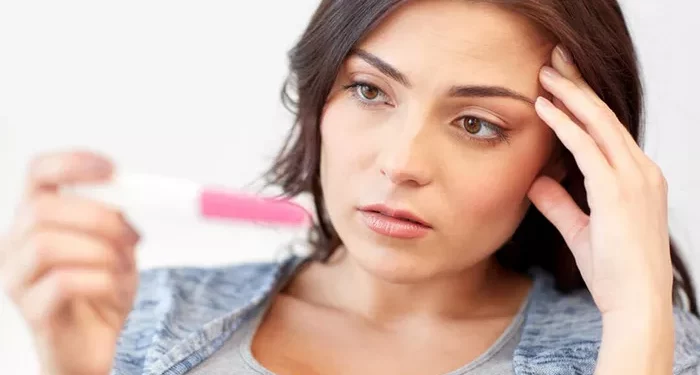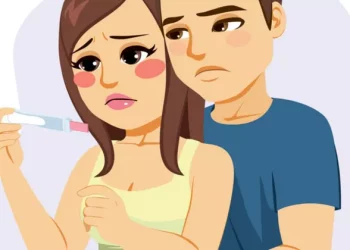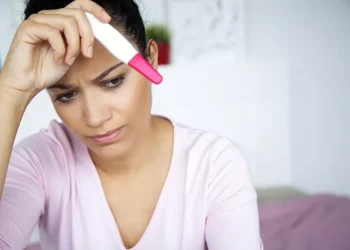The menstrual cycle is a complex process that plays a crucial role in female fertility. It is typically around 28 days long but can vary between individuals. This cycle involves a series of hormonal changes that prepare the body for pregnancy. Ovulation, the release of an egg from the ovary, occurs mid-cycle and is essential for conception. Regular menstrual cycles are usually a sign of regular ovulation. However, when periods are absent, a condition known as amenorrhea, it raises concerns about fertility.
Amenorrhea is the medical term for the absence of menstrual periods. It can be primary (when menstruation hasn’t started by age 15) or secondary (when periods stop for three months or more in women who previously had regular cycles). The link between amenorrhea and fertility is significant because the absence of periods often suggests the absence of ovulation (anovulation), making it difficult to conceive. However, it’s important to understand the underlying causes and implications of amenorrhea before drawing conclusions about infertility.
See also: Endometriosis and Infertility
Lack of Periods and Ovulation
Regular menstrual periods are a reliable indicator of regular ovulation, which is a key factor in fertility. Each menstrual cycle, the body undergoes hormonal changes that prepare the uterine lining for a potential pregnancy. If an egg is not fertilized, the lining sheds, resulting in a period. Therefore, regular periods typically signify that ovulation is occurring consistently, increasing the chances of pregnancy.
In contrast, amenorrhea often suggests anovulation. Anovulation means that the ovaries are not releasing eggs, making conception unlikely. Without ovulation, there is no egg available for fertilization by sperm, which is a primary requirement for pregnancy. Therefore, the absence of periods can be a significant indicator of potential fertility issues. However, it is essential to identify the specific cause of amenorrhea to understand its impact on fertility fully.
Possible Causes of Amenorrhea
Several factors can lead to amenorrhea, and understanding these causes is crucial for addressing potential fertility issues.
Stress: High levels of physical or emotional stress can disrupt the hormonal balance necessary for regular menstrual cycles. The body may temporarily shut down reproductive functions in response to severe stress, leading to amenorrhea.
Weight Issues (Underweight or Overweight): Both extreme underweight and overweight conditions can affect menstrual cycles. Low body weight can lead to a decrease in estrogen production, which is necessary for ovulation. Conversely, excess body fat can cause an overproduction of estrogen, disrupting the hormonal balance and preventing ovulation.
Polycystic Ovary Syndrome (PCOS): PCOS is a common hormonal disorder that affects women of reproductive age. It is characterized by irregular periods, excess androgen levels, and polycystic ovaries. Women with PCOS often experience anovulation, making it a significant cause of amenorrhea and infertility.
Thyroid Problems: The thyroid gland plays a vital role in regulating the body’s metabolism, including the reproductive system. Both hypothyroidism (underactive thyroid) and hyperthyroidism (overactive thyroid) can lead to menstrual irregularities, including amenorrhea.
Certain Medications: Some medications, including hormonal contraceptives, antidepressants, and antipsychotics, can interfere with menstrual cycles. These medications can affect the hormonal balance required for regular ovulation, leading to amenorrhea.
These factors disrupt hormonal balance and ovulation in various ways, underscoring the importance of identifying the specific cause of amenorrhea to address potential fertility issues effectively.
Amenorrhea Does Not Always Mean Infertility
While amenorrhea can be a sign of anovulation and potential infertility, it does not always mean that a woman is infertile. Some causes of amenorrhea are treatable, and once addressed, normal ovulation and menstrual cycles can resume.
For example, lifestyle changes such as managing stress, achieving a healthy weight, and treating underlying medical conditions can restore regular periods and ovulation. In cases of PCOS, medications and lifestyle modifications can help regulate menstrual cycles and improve fertility.
Additionally, even in the presence of irregular periods, ovulation may still occur occasionally. Women with infrequent ovulation may still have the potential to conceive, although it may be more challenging.
See also: Emergency Guide: Do Uterine Fibroids Affect Fertility?
Conclusion
Amenorrhea can be a sign of infertility, primarily due to the absence of ovulation. However, it is not always a definitive indicator of infertility. Understanding the underlying cause of amenorrhea is crucial in determining its impact on fertility. Many factors contributing to amenorrhea are treatable, and with appropriate medical intervention, normal ovulation and menstrual cycles can often be restored.
It is essential to consult a healthcare provider to determine the specific cause of amenorrhea and discuss fertility options. Medical professionals can provide personalized advice and treatment plans based on individual circumstances.
For further information on amenorrhea and fertility, resources such as medical websites, fertility clinics, and support groups can offer valuable insights and support.
Disclaimer
This article provides general information about amenorrhea and its potential impact on fertility. It is not a substitute for professional medical advice. For personalized advice and treatment, please consult a healthcare provider.
Related Topics:
Can Infertile Women Have Periods: A Simple Guide
Emergency Guide to Female Infertility: The Most Common Cause



























